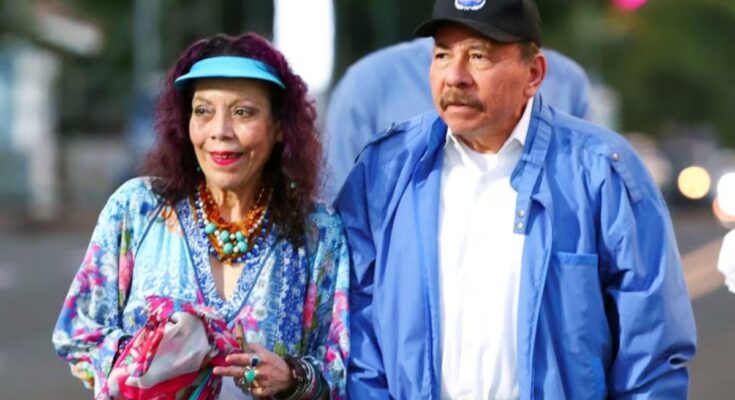Three months and eleven days after being pardoned by the regime of Daniel Ortega and Rosario Murillo, José Francisco Salgado went to the home of his aunt María Torrez Salgado, an 81-year-old woman, to kill her. It was Saturday 27 January 2024, at six in the morning, when the prisoner who benefited from the “family coexistence” regime suffocated the victim until she lost consciousness… To commit the crime, he tied a rope to her and tightened it to the bottom. He then fled, stealing a television and a cell phone.
Salgado is one of the 53,164 common prisoners released by the co-presidential regime in the last decade, especially in recent years, when these releases have been tinged with Sandinista propaganda, which classifies them as “gestures of peace and good”, conceived “in family unity”. “People have the right to opportunities,” said Interior Minister María Amelia Coronel Kinloch on November 1, when a thousand common prisoners were freed.
The thousand common prisoners joyfully raised their certificates of liberation. They took photos and thanked co-presidents Ortega and Murillo. This group was not the only one nor the first. So far, in 2025, 8,400 common prisoners have benefited from this “family coexistence regime”. Among them there are criminals of all kinds, from robbers to femicides who have not served their sentences. The most obvious case is that of Salgado, who had not even served 50% of his sentence for motorcycle theft when he was pardoned.
The release of common prisoners before completing their sentences has been criticized, mainly, by feminist organizations, with the thesis that after these benefits feminicides have increased in Nicaragua. For its part, the Fundación sin Límites, a Nicaraguan think tank in exile, has been observing for years this government policy of freeing common prisoners, and in particular the impact this has on the security of citizens and on the political system of the Sandinista regime. On the one hand, they warn of the high probability of recidivism of these pardoned common prisoners.
“The data indicates that 7.18% of these people are repeat offenders committing crimes, which shows that a significant part of those who have been released fail to fully reintegrate into society or abandon criminal behavior,” claims an analysis by the Sin Límites Foundation shared with EL PAÍS.
In addition to recidivism, surveys reveal an increase in the feeling of insecurity among Nicaraguans, also linked to the pardoning of those convicted. A recent opinion poll conducted by the Hagamos Democracia organization revealed that 97% of Nicaraguans perceive an increase in crime.
According to the authorities of the Penitentiary Organ, the social reintegration of prisoners is promoted through educational programs, ranging from basic literacy to university studies in coordination with various universities in the country. Likewise, the productive activities carried out in penitentiary centers stand out, including carpentry, welding, baking and the production of vehicle license plates. “However, the aforementioned recidivism rate highlights important limitations of the system: the courses and tools offered may be of low quality, and individual needs or essential treatments related to mental health and addictions may not be adequately considered,” questions the organization in exile.
“Strategic function” of the regime
The Fundación sin Límites points out that these releases of common prisoners “are heavily loaded with symbols linked to Sandinismo, where it is common to observe demonstrations of public gratitude towards the presidential couple and the government in general.” However, these releases could also serve “a broader strategic function in the political and social fields”.
“The release of thousands of ordinary prisoners, some of whom are repeat offenders in criminal activities, creates a climate of insecurity that worries citizens. Given the fear of being victims of robberies, assaults or other crimes, public attention shifts to daily security problems, relegating issues of great political importance to the background, such as the situation of prisoners of conscience or criticism of the authoritarian system,” continues the NGO. “In this sense, these measures not only impact the dynamics of citizen security, but also contribute to shaping the common narrative, placing immediate social concerns above structural political discussion.”
Instead, Ortega and Murillo have consolidated the justice system as a political tool that limits fundamental rights and represses political opposition. “Arbitrary arrests, the criminalization of people considered members of the opposition and violations of the integrity of people deprived of liberty reflect the absence of judicial independence and effective mechanisms for the protection of citizens,” concludes the Fundación sin Límites.



